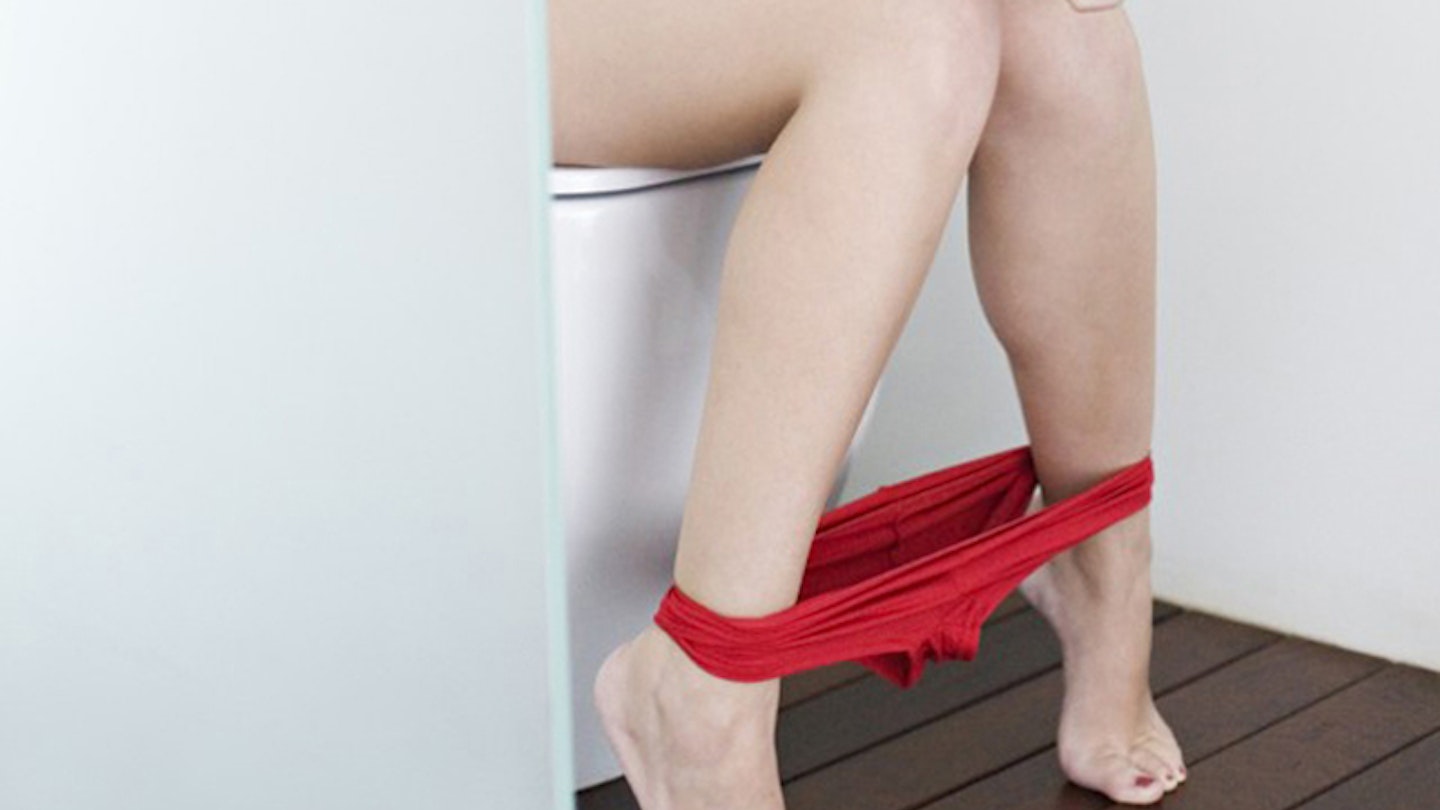Is a cough or a sneeze causing bladder weakness during pregnancy or in your life as a new mum? Get over the embarrassment of incontinence and learn how to get it under control
What is it?
Bladder weakness is perhaps one of the least glamorous effects of being pregnant, but it’s common so stop beating yourself up about it.
‘In pregnancy, it’s often the result of two things – hormones and the pressure of your baby pushing on your bladder,’ says Mervi Jokinen from The Royal College of Midwives.
‘Hormones relax muscles and ligaments in the body to prepare for your baby’s arrival. However, this can also affect the pelvic floor muscles that control the flow of urine.’
In the first trimester, as your uterus gradually starts to expand, it will push on your bladder so you may need the toilet more. Then in the second trimester, the uterus moves up and out of the pelvic cavity alleviating the pressure.
‘Finally, in the third trimester, your baby will grow further and he’ll once again push on your bladder,’ says Mervi. When your baby is delivered, your pelvic floor muscles can weaken further, making the problem worse.
What are the symptoms?
You’ll feel a sudden urge to go the toilet and may find you leak urine when you cough, squeeze, laugh or lift heavy objects.
What can you do?
Exercise your pelvic floor muscles. ‘You can identify them by imagine yourself stopping mid-flow when peeing,’ says Mervi.
However, you shouldn’t do this for real as not emptying your bladder properly can cause bacteria to start growing and lead to urinary tract infections (UTIs).
If pelvic floor exercises aren’t helping, ask your doctor to refer you to a women’s health physiotherapist or a continence nurse.
A strong pelvic floor will go a long way to helping with incontinence both before and after pregnancy but if you’re worried about leaking, wear a panty liner. ‘Most importantly, don’t hold off drinking fluids because you’re worried about having an accident,’ says Mervi. ‘You could end up becoming dehydrated.’
See your GP if…
You get a pain or a stinging sensation when you pee and have cloudy urine.
‘It could be a urinary tract infection, caused by you trying to withhold urine,’ says Mervi. ‘They’re quite common in pregnancy, especially as your hormones also relax the muscles surrounding the ureter (the tube connecting your kidneys to your bladder), slowing the progression of urine and allowing bacteria to grow.’
If you’re close to your due date, feel yourself leaking and can’t seem to make it stop, it could be your waters breaking, rather than incontinence, so call your midwife.
Useful product
If you are suffering with incontinence after pregnancy, there is a new product you can try. Femifree is a new, non-invasive muscle stimulation device that gently strengthens the pelvic floor muscle for effective treatment of urinary incontinence, for use after pregnancy.
Femifree has been designed with Multipath™ cross-cross technology, designed to stimulate and strengthen the pelvic floor muscle groups.
The garment is placed around the upper thigh and buttock area; electrodes are precisely positioned to allow the multi-directional signal technology to stimulate focused, accurately co-ordinated and highly effective pelvic floor muscle contractions.
Stephanie Baldwin is 22, with two children. She said: “I suffered from Urinary Incontinence for a couple of years following the birth of my first child. I was advised to do pelvic floor exercises, but they didn’t do anything to help. My only options at the time were pelvic floor exercises, internal probes which didn’t appeal, or surgery which I really didn’t want to go through, particularly while caring for a young child.
“Femifree was really simple to use, comfortable to wear and easy to put on. With a low setting there is not a great deal of sensation, as you build up the levels you can feel a tingling, not at all painful though.
“I never thought urinary incontinence would happen to me, particularly at my age. It was difficult to cope with and really impacted my confidence and even my sex life. I couldn’t do any exercise, I used to regularly do yoga and go jogging, but every time I tried I would experience leaks. Little things that I used to take for granted were suddenly a challenge, like picking up heavy shopping bags at the supermarket, coughing, sneezing and laughing, even socialising and going out for dinner made me nervous. Not only that, it also affected daily activities with my son, even playing games with him became really difficult.
“Dealing with Urinary Incontinence is tough, you feel like you’re on your own, it’s embarrassing to talk about so you just put up with it. But there are treatments out there that don’t involve surgery or internal probes.”
For more information visit Femifree's new rebranded website myinnovo.com.
